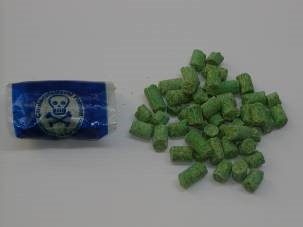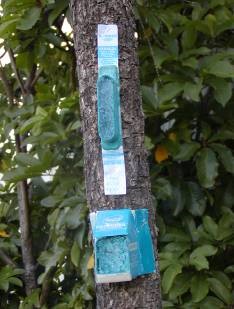 Cholecalciferol is used to control both possums and rats.
Cholecalciferol is used to control both possums and rats.
We use three forms of this toxin for possum control;
- Decal is a cereal pellet that is dyed green in colour. The pellets are either placed loose inside a bait station, or packaged into plastic bags weighing 30grams, which are placed inside a bait station. All bait and bait stations are attached to trees, out of the reach of domestic and farm animals. Bait weighing 30g is one lethal dose for a possum.
- Feracol is a peanut based paste bait dyed blue/green in colour. Feracol Strikers are 18g of paste packaged into a potato starch bait station and are attached to trees.
- Double Tap – is a bait that has two active ingredients; Cholecalciferol and Diphacinone. Find out more about Double Tap.
 Cholecalciferol in high doses acts by elevating blood calcium levels, causing heart failure. Possums and rodents have a low tolerance to calcium, which makes them particularly sensitive to this type of toxin.
Cholecalciferol in high doses acts by elevating blood calcium levels, causing heart failure. Possums and rodents have a low tolerance to calcium, which makes them particularly sensitive to this type of toxin.
Animals poisoned with cholecalciferol show loss of appetite, reduced body weight and elevated calcium concentrations in blood and tissue. Possums die in four to seven days.
Safety precautions
To ensure safety in areas where cholecalciferol is being used:
- Warning signs will be erected at all main access points where cholecalciferol bait stations are placed
- Children should be kept away from the area
- Baits, bait stations or bait bags should not be handled
- Don’t handle dead possums or rats
- Don’t let dogs scavenge animal carcasses
Environmental effects
Cholecalciferol poison breaks down on contact with soil, light and heat and is virtually insoluble in water. It has a low toxicity to birds, and is of low secondary poisoning risk. It is non-persistent in livestock.
Get in touch
- Phone:
- 0800496734
- Email:
- info@gw.govt.nz
